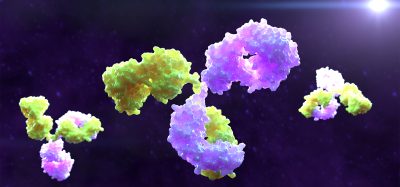A universal flu vaccine may be in sight
Posted: 21 September 2018 | Iqra Farooq (Drug Target Review) | No comments yet
Researchers from Oxford have identified the initial steps on the path towards creating a universal influenza vaccine that could last for life…


Oxford University researchers have demonstrated pre-clinical success for a universal flu vaccination.
Influenza is known to be a highly variable virus, and is able to mutate and as such escape any immunity built up in a population because of its circulation in previous seasons. However, in reality, influenza seasons tend to be dominated by a few antigenically and genetically distinct influenza viruses, creating a paradox, especially since influenza is thought by the majority as being highly variable.
Influenza seasons are really dominated by only a few strains.
Professor Sunetra Gupta‘s team developed mathematical models over the past 20 years to identify an answer to this situation, and through collaborative approaches with other departments, the teams believe they have the answer.
Dr Craig Thompson said: “The integrated approach to vaccine design that we have applied to flu has to the potential to be applied to other previously intractable pathogens and could revolutionise the way we develop vaccines.”
The research team theroised that areas of the virus targeted by the immune system are limited in variability, and act as constraints on the evolution of the virus. Using data from Dr Gupta’s team, Dr Thompson identified the location of these regions of limited variability.
He showed that these locations are naturally targeted by the immune system and also through vaccination studies, he showed that regions of influenza viruses that circulated in 2006 and 1977 were able to protect against infection with an influenza virus that last circulated in 1934.
In the study, 30 mice were vaccinated with epitopes identified in the study, while 12 were vaccinated with a control (a vaccine without the epitopes in the study, but the same otherwise). Another 12 mice were ‘mock’ vaccinated, injected with PBS. Six mice were used as normal controls and not vaccinated at all.
The researchers mapped historical versions of the virus, along with computational analysis to analyse their results, which can be used to create a novel, ‘universal’, or broadly active influenza vaccine, which in theory would provide lifelong protection against influenza.
Professor Sunetra Gupta said: “I think this work serves a good example of how evolutionary models can have translational impact. We have gone from a prediction of a mathematical model to a blueprint for a universal influenza vaccine. The outstanding teamwork coordinated by Dr Thompson is what made it all possible.”
The team hopes to apply their findings to other viruses such as HIV and HCV, and believes they could, in the future, produce a vaccine against the common cold.
The study was published in Nature Communications.
Related topics
Analysis, Artificial Intelligence, Disease Research, Drug Development, Drug Discovery, Drug Targets, Research & Development, Therapeutics
Related conditions
Influenza
Related organisations
Oxford University
Related people
Dr Craig Thompson, Professor Sunetra Gupta








